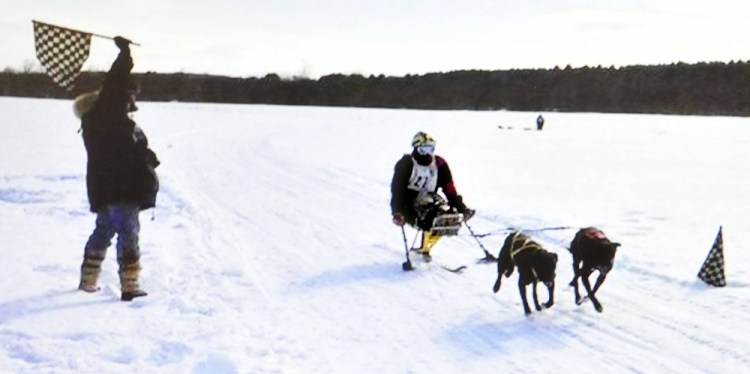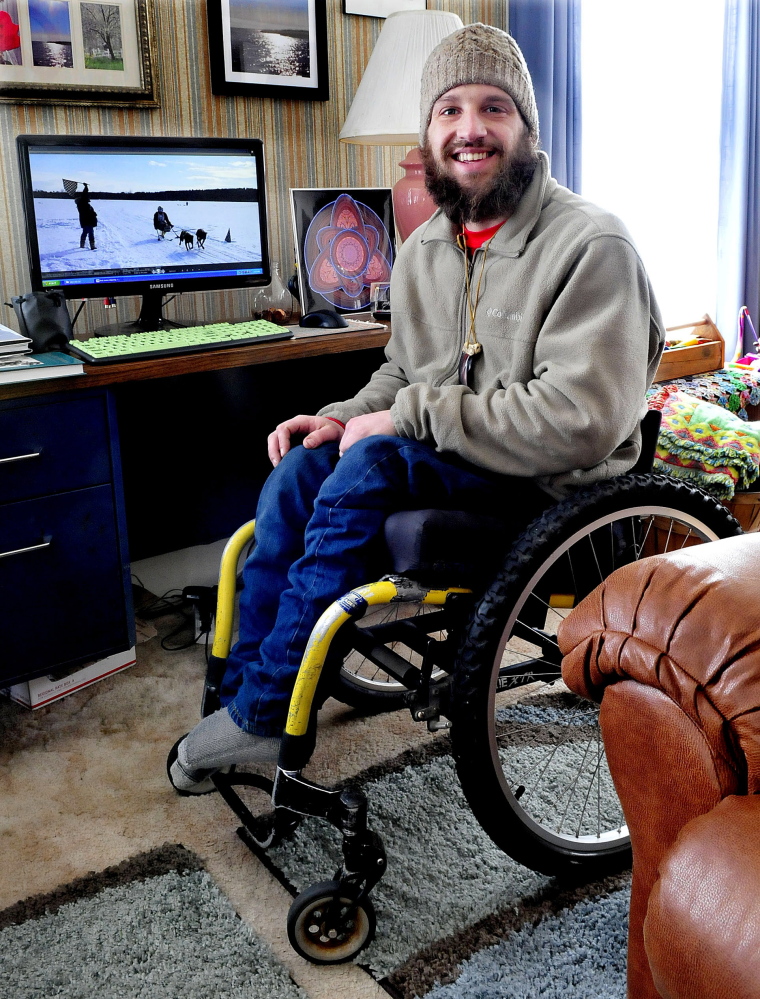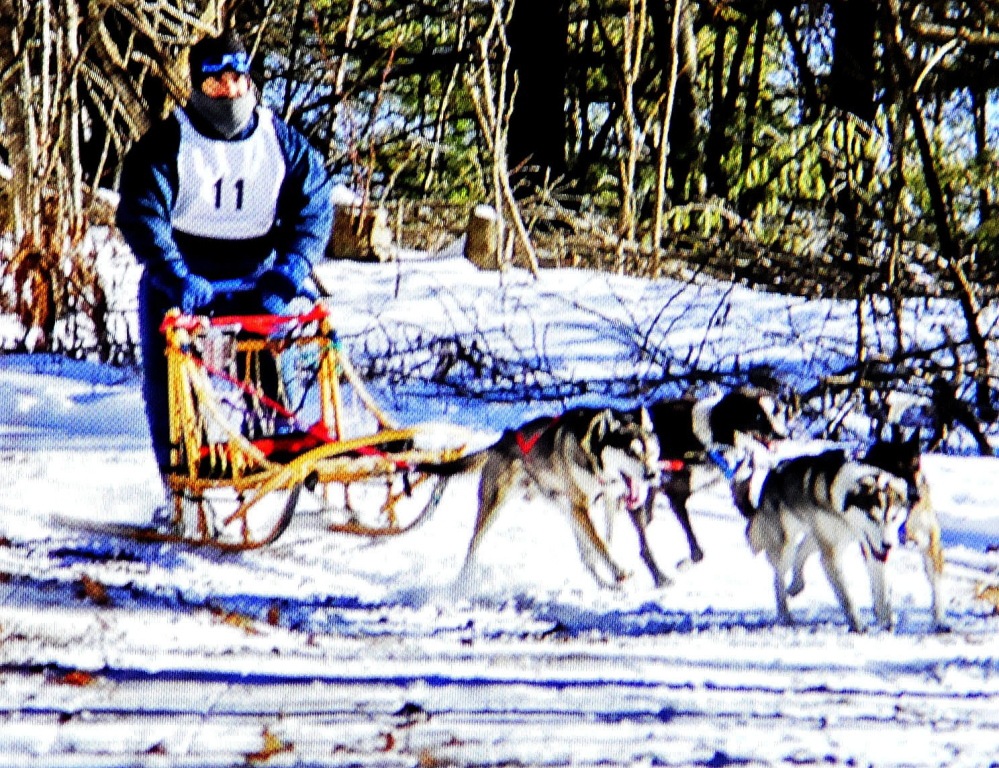EAST VASSALBORO — For as long as he can remember, Joe Albee longed to visit Alaska.
“It’s something I’ve always talked about,” said the 28-year-old who works at the engineering group Wunderlich-Malec in Winslow. “I’ve always been really into nature.”
When Albee, who has spina bifida and has had to undergo several surgeries to correct the flow of spinal fluid in his vertebrae, was on bed rest, he would look for television shows and movies featuring the state.
The dream finally came true last month for Albee, who has been in a wheelchair for as long as he can remember. He traveled to Alaska for eight days, spending his time dogsledding, snowmobiling and taking in the aurora borealis — the northern lights — from inside the Arctic Circle.
“I’ve always dreamed of going to a place like Alaska and never even thought I would feel what dogsledding is really like. Now I’ve actually gotten out on the trail and done some incredible dogsledding,” he said. “That’s what makes it a dream come true.”
The trip was made possible in part through two funding campaigns on social media and the help of a friend, Colby Briggs, whom Albee knows through Heywood Kennel Sled Dog Adventures in Augusta, where he began photographing dogsledding a couple of years ago.
“It was unbelievable. I was getting ready to go on this dream trip to Alaska, and people donated money to help me,” Albee said. “They were like, ‘OK, you can go freeze in Alaska.'”
About a year ago, Briggs moved to Alaska to work at Arctic Winter Adventures, a guide service that plans dogsledding adventures and is home to about 50 Iditarod sled dogs. The Iditarod, one of two multi-day dog races across Alaska, starts Monday from Fairbanks 225 miles north of its usual starting place of Willow because of a lack of snow.
During his trip Albee was able to go dogsledding on his own for the first time last year. He used a new mono-skijoring technique which has the musher rising on a sled mounted on a single ski and keeping his balance with a pair of poles while being towed by a dog or team of dogs.
Albee spent several days photographing the dogsledding culture and participating in the sport. He was also at the finish line of the Yukon Quest, Alaska’s other 1,000-mile dog sled race.
During the visit, Albee met Alaska’s governor in a chance meeting on a flight from Fairbanks and came away with a three-inch souvenir bear-claw that he wears on a leather string around his neck.
His favorite part though was getting to know the dog sledders and photographing them.
“Definitely the dogsledding and getting to meet all the mushers,” he said, when asked about his favorite part of the trip. One sled dog adventure took Albee miles away from the lodge he was staying at and into the midst of the Alaskan wilderness.
“There wasn’t a truck sound, a train sound, nothing. It was so incredibly quiet,” he said. Albee is hoping to use the trip as a launching point for his own photography business and setting up a website. Whether he is traveling, skiing, dogsledding or taking pictures, he says his disability has never slowed him from pursuing the things he loves. Albee credits his parents, Shyla Fortin and Eric Albee, and his brother and two sisters for helping make that possible.
“My mom is the one who has given me the most incredible passion about nature and the outdoors,” Albee said. “She taught us kids growing up that you can use nature and going outside and being out in the wild as your church pretty much. If you practice being outside in nature, you can really learn a lot from nature and everything Earth has to offer.”
Growing up, Albee and his family spent a lot of time at a camp between Rangeley and Stratton that Albee said also inspired him to travel further into the wilderness and get to Alaska. He said he was grateful to everyone he met on the trip including area mushers and the employees of Arctic Winter Adventures.
“It’s about making the best of it,” he said. “That’s my whole purpose in going to Alaska and going to the Arctic Circle in my wheelchair. It was a big thing for me to say, ‘Hey look, they have equipment now that can get people in wheelchairs to the Arctic Circle and you can go do whatever anyone else does.’ You have to try and do that stuff, or life is going to get you down. I’ve been in that place, where life has gotten me down, recovering from surgeries and feeling like it’s never going to end, but if you keep looking forward, you’ll get to the end of it.”
Rachel Ohm — 612-2368
Twitter: @rachel_ohm
Send questions/comments to the editors.






Success. Please wait for the page to reload. If the page does not reload within 5 seconds, please refresh the page.
Enter your email and password to access comments.
Hi, to comment on stories you must . This profile is in addition to your subscription and website login.
Already have a commenting profile? .
Invalid username/password.
Please check your email to confirm and complete your registration.
Only subscribers are eligible to post comments. Please subscribe or login first for digital access. Here’s why.
Use the form below to reset your password. When you've submitted your account email, we will send an email with a reset code.